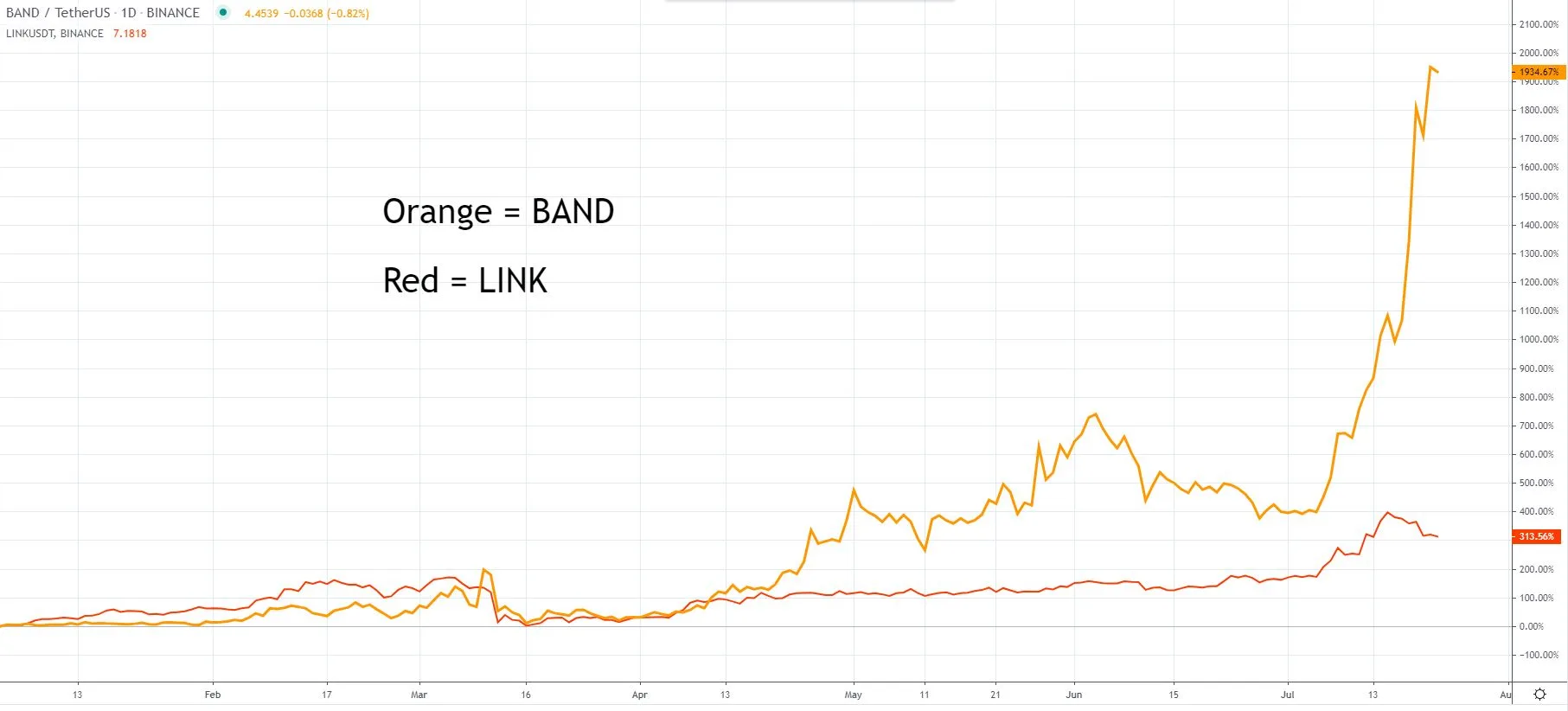ICON integrates Band Protocol 6 months after Chainlink

Variety is important to effective decentralisation, as well as being the spice of life.
Decentralised oracle project Band Protocol has been integrated into ICON, meaning developers who are building applications and writing smart contracts for the ICON blockchain can now start getting data from Band Protocol oracles.
"The strategic partnership and integration with Band Protocol to the ICON Network will bring increased security and scalability to all the decentralized applications built on South Korea’s largest blockchain project. Band Protocol’s oracle will simultaneously strengthen the existing network and allow expansion to new real world uses," said ICON founder Min Kim.
"We are excited to be integrating with ICON and expanding the use of data oracles in South Korea where the blockchain industry is very developed and welcomed by authorities," Band Protocol CEO and co-founder Soravis Srinawakoon added.
Okay, but what does this have to do with Chainlink?
Band Protocol (BAND) and Chainlink (LINK) have a lot in common.
Both are decentralised oracles where people stake tokens to assure users that their smart contract data is good, and both let blockchains talk and listen to any API on the Internet and access data across blockchains.
Both are also hot digital property. Chainlink has enjoyed a substantial price rise in the year to date, going from less than $2 to a new all time high of $8.50-ish, while Band Protocol has proportionally done much more, especially in the last few weeks, albeit with a much smaller market cap. At the time of writing the LINK market cap is about US$2.5 billion, while the BAND market cap is less than $75 million.

BANDUSDT chart by TradingView
And now both have also been integrated into ICON within six months of each other, which may speak to some of the differences between Band Protocol and Chainlink.
One big difference is that Chainlink is built on Ethereum while Band Protocol is based on Cosmos, which lets Band Protocol get around some of the scalability issues that Ethereum/Chainlink are jointly experiencing.
Last March, for example, many Chainlink oracles simply stopped working right when they were needed most, as a result of congestion on the Ethereum network. This is fine (but really not ideal) for the current immature state of DeFi, but if you're serious about disintermediating the financial system it's a deal breaker.
In light of the recent monumental growth of Ethereum DeFi, this is perhaps a good time to reflect on the fact that it could happen again at any time with no warning.
0a/ Yesterday was the first major test of what happens when you try to bridge systems, each of which do not have uniform definitions of “time”
This is going to happen again, and it’s going be worse next time
— Kyle Samani (@KyleSamani) March 13, 2020
ICON is one of South Korea's largest blockchain projects, angled towards government and enterprise use, with numerous partners in high places. So it's understandable that its developers would be interested in more scalable alternatives, without necessarily needing to chain themselves to Ethereum's development timetable.
Plus, more oracles is better. The whole point of oracles is to decentralise your data sources, so tapping into oracles from both Band Protocol and Chainlink is even more decentralised and reliable. We've seen this in the way bZx, after falling victim to a flash loans exploit, is now backstopping its Chainlink feeds with Band Protocol's.
Fortunately, decentralisation isn't a zero sum game.
Also watch
Disclosure: The author holds KDA, ETH, BNB, BTC at the time of writing.
Latest cryptocurrency news
-
The Coinstash Cryptocurrency Hub
30 May 2024 |
-
Ordinals and runes – the new crypto craze?
24 Apr 2024 |
-
Join the party: Finder’s giving away $200K worth of Bitcoin
23 Feb 2022 |
-
Australians have spent $50.9 million on crypto trading fees
31 Jan 2022 |
-
Stablecoins vs Bitcoin: What’s the difference?
3 Nov 2021 |
Picture: Shutterstock
Ask a question
